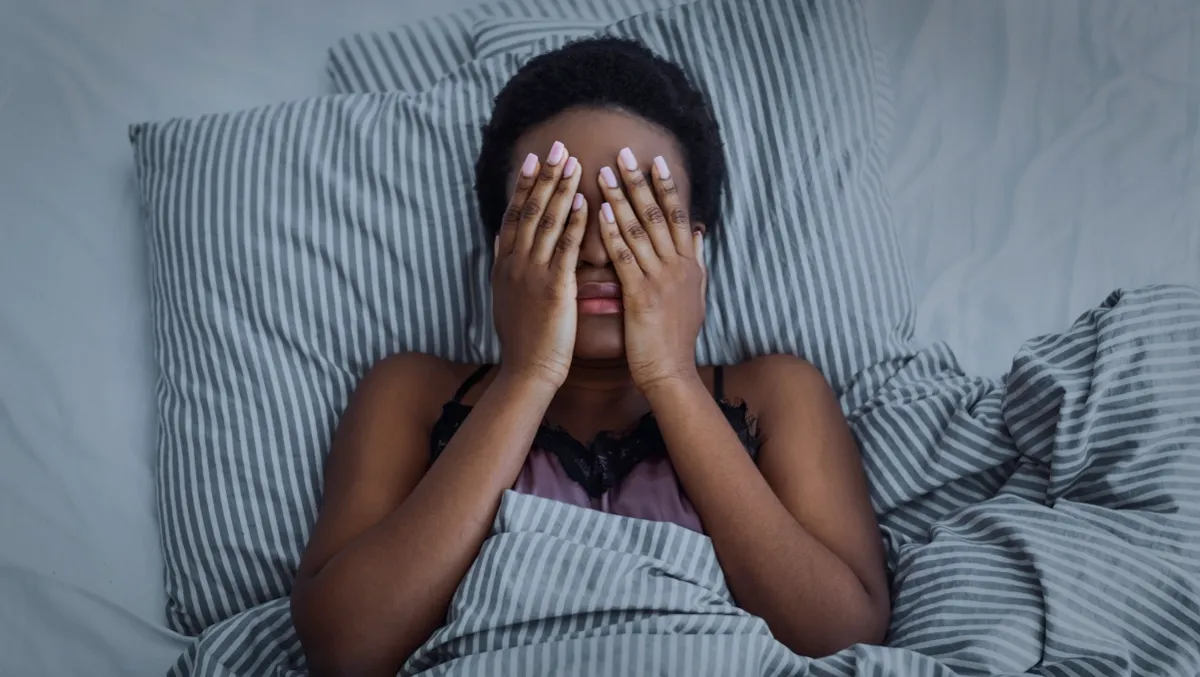It can be hard to notice sleep. When we sleep well, the time passes nearly undetected. While our other health practices involve effort – exercising, eating nutritious foods, flossing – sleep involves, seemingly, the absence of action. It’s practically a non-event. And thus, the science of sleep can slip into the realm of self-care, as if proper sleep is an indulgence, akin to a massage, rather than an essential life ingredient, akin to oxygen.
COVID-19 changed that. The world crawled into bed in February 2020, but it’s still waiting to sleep. Take sleep away, and it’s hard to notice much else.
Collectively, we’ve experienced higher rates of sleeplessness during the pandemic. I recently co-authored a study, in which 22,330 adults from 13 countries reported their COVID-19 and pre-COVID-19 sleep patterns. The results, published in Sleep Medicine in November 2021, were startling.
Read more about insomnia:
- Insomnia, depression and smoking are risk factors for type 2 diabetes
- Why do I get anxious thoughts late at night?
- Dr Michael Mosley: why your sleep tracker could sabotage your shuteye
During the early stages of the pandemic, 36.7 per cent of respondents experienced clinical insomnia symptoms and 17.4 per cent met the criteria for insomnia disorder. These rates were double those of pre-pandemic levels. While insomnia disorder increased around the world, it spiked highest in Brazil, the United Kingdom, Canada, the United States, Poland and Norway. Another international study, published in The Lancet, revealed that health care professionals experienced twice the sleep disturbances than the general population.
Stressful life events rank among the top factors associated with sleep problems, and the pandemic brought plenty: economic upheaval, childcare challenges, isolation, and – of course – COVID-19 itself.
The sleep crisis exacerbated the mental health crisis: people who sleep poorly on a regular basis are twice as likely to have mental health disorders. In that same study, 25.6 per cent of respondents reported anxiety and 23.1 per cent reported depression. As with sleep disturbances, both rates were significantly higher than pre-pandemic levels.

While this study focused on insomnia’s effects on mental health, sleep disturbances compromise physical health too: they are associated with conditions as serious as heart disease and stroke. A circular association exists between the three: people with insomnia tend to experience more mental and physical illness; people with mental and physical illness tend to experience more insomnia.
Insufficient sleep was an issue even before the pandemic. Minimising sleep is often seen as a life hack, or worse, a virtue. Confusing a critical element of health with a lifestyle choice is nothing new. Think of tobacco, which for decades was associated more with glamour than cancer. Until 1994, hospitals even offered areas for doctors and patients to smoke. Think of exercise, too. A generation ago, most doctors wouldn’t think to ask a patient about cardio habits, which seemed more relevant to building an attractive physique than a healthy body.
One of the unfortunate legacies of the pandemic is that it created the conditions to show what happens when we take sleep away on a global scale. This wasn’t just about bleary mornings and late nights, but about increased rates of depression and anxiety. But we can find hope in this study, too. It reveals the potential that exists – on an individual and public health level – if people and healthcare providers remember that a good night’s sleep is a medicine to support better mental and physical health.
Read more about COVID-19: